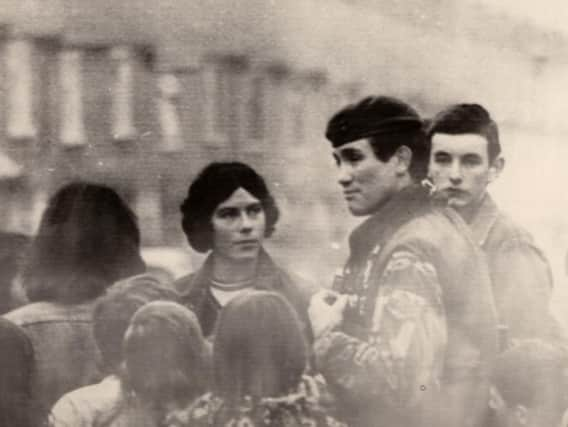Timeline: Sunderland soldier Robert Nairac's life, death and the ongoing search for his body


August 31, 1948:Robert Nairac is born on the island of Mauritius, in the Indian Ocean, to an English mother and a French-Mauritian father.
1949:Nairac’s parents and their four children move to Sunderland, living in Thornhill Gardens, off Tunstall Road, Asbrooke, for around 20 years with Mr Nairac working as an eye surgeon at nearby Sunderland Eye Infirmary.
Advertisement
Hide AdAdvertisement
Hide Ad1959:Enrols at Roman Catholic public school Ampleforth College, on the North Yorkshire Moors.1967: Attends Lincoln College, Oxford University, where he reads medieval and military history. Also excels at boxing and rugby and becomes a keen falconer.
1971:Enters the Royal Military Academy at Sandhurst before joining the Grenadier Guards. Eventually joins his regiment after post-graduate studies at the University College of Dublin.
1973:His first tour of duty in Northern Ireland with the Second Battalion of the Grenadier Guards. Duties were mainly to find paramilitaries and weapons.
1974-75:Joins military intelligence and acts as liaison officer between the British Army and the Royal Ulster Constabulary (RUC).
Advertisement
Hide AdAdvertisement
Hide AdMay 14, 1977: After increasingly undertaking undercover activities, the now Captain Nairac visits the staunchly Catholic Three Steps pub, in Dromintee, South Armagh, where he reputedly sings Republican songs before he is abducted by IRA members, taken across the border and eventually shot dead the following day.
November 1977:IRA member Liam Townson, 24, is convicted of Capt ain Nairac’s murder after beginning his initial police statement by saying: “I shot the British captain. He never told us anything. He was a great soldier.”1979:Captain Nairac is posthumously awarded the George Cross for his bravery.
1999:The Independent Commission for the Location of Victims’ Remains (ICLVR) is set up jointly by the United Kingdom and Irish governments to find the remains of 16 “disappeared” victims of the Troubles.
April 2011:The last criminal case against suspects ends with the acquittal of IRA member Kevin Crilly, 57, of murder. Three men, including Townson, have served sentences for murder, another was convicted of manslaughter and two more found guilty of kidnapping and withholding information. None revealed what happened to his body.
Advertisement
Hide AdAdvertisement
Hide AdApril 2017:The head of the Roman Catholic Church in Ireland, Archbishop Eamon Martin, said churchmen would be willing to listen to anyone who can end the mystery over the whereabouts of Captain Nairac’s remains and those of other Republican “disappeared” victims.
May 10, 2017:Human remains found in northern France are confirmed as those of teacher Seamus Ruddy, who was murdered by the INLA Republican splinter group in 1985. The discovery means that Captain Nairac is one of only three of the original 16 “disappeared” still to be discovered.